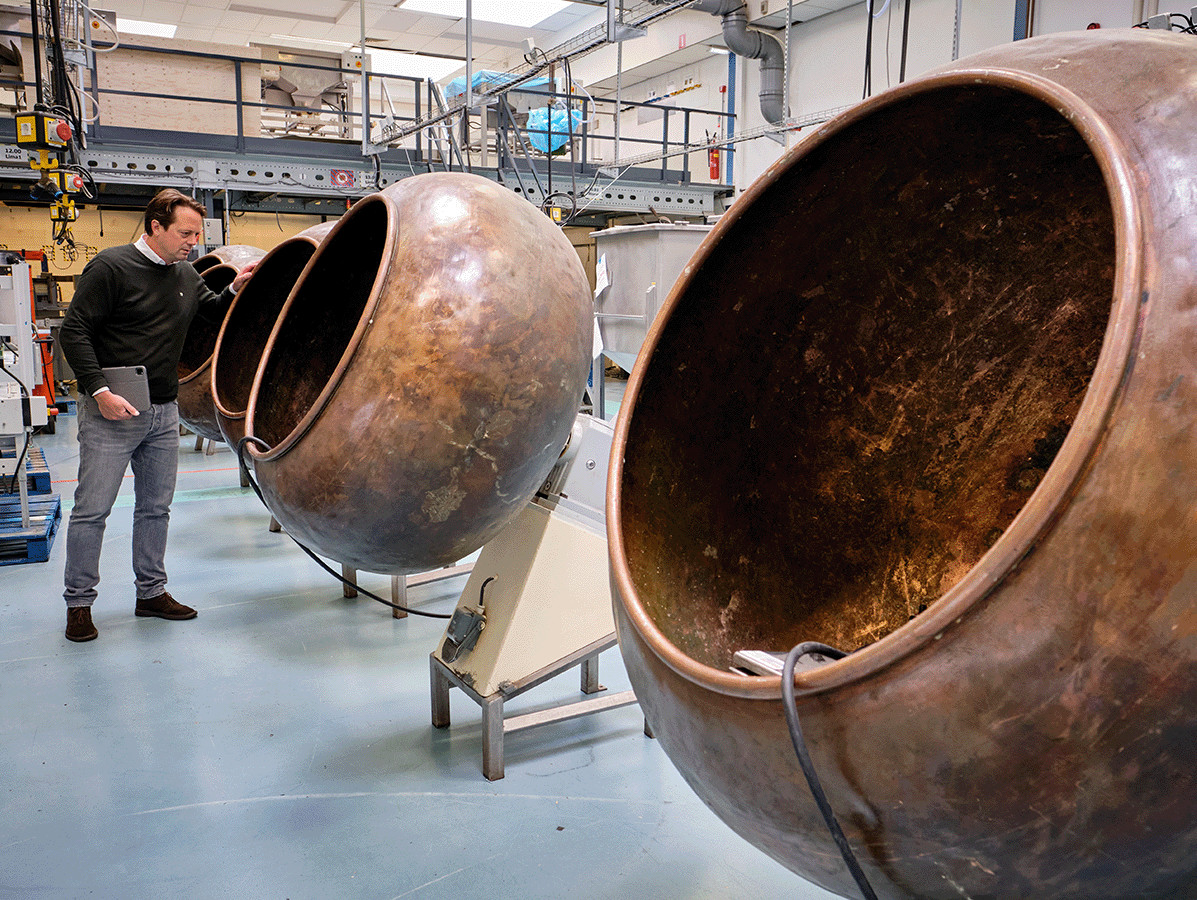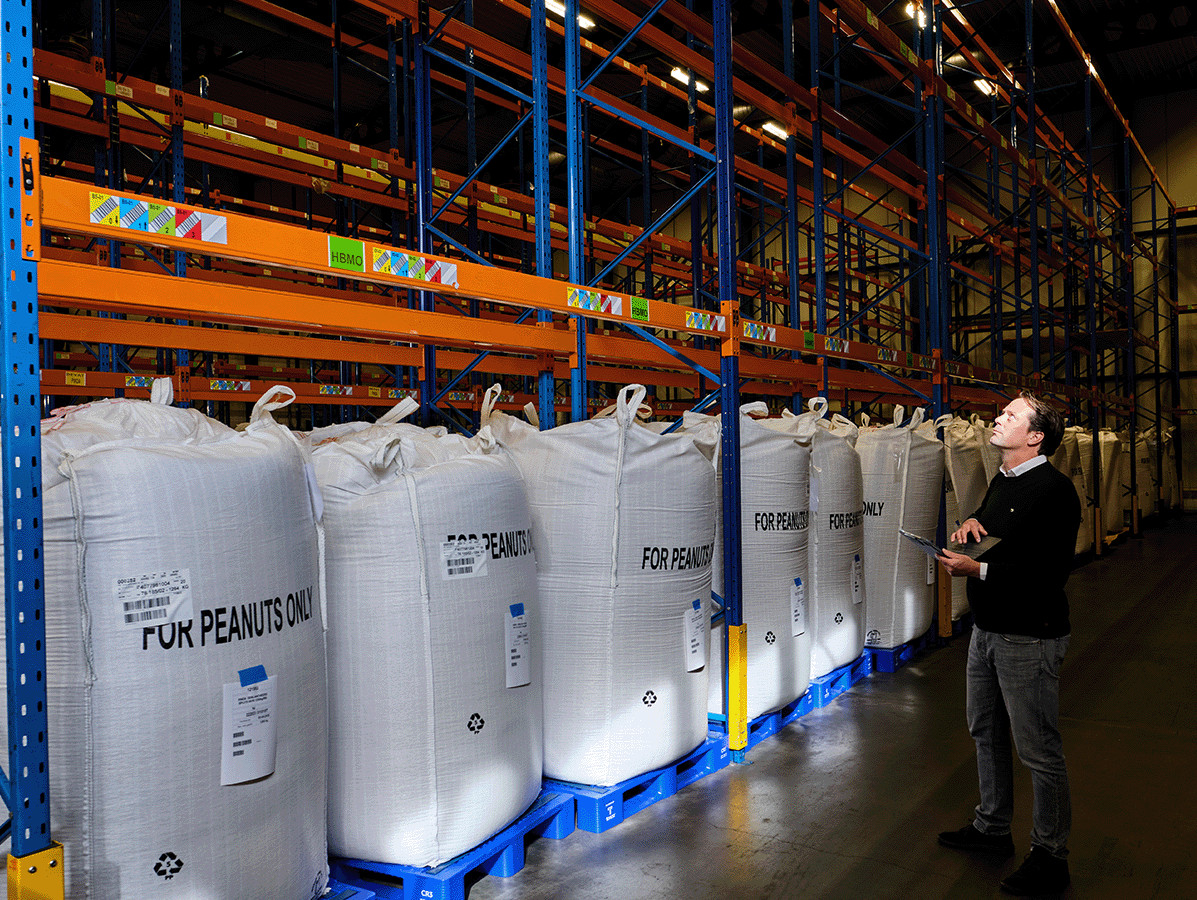
Machines that would end up in the shredder or in storage after a renovation or new construction can often still be of excellent use elsewhere. Through online auctions, a lot of equipment finds a second life. And that brings plenty of benefits to both seller and buyer.
'Start-ups and scale-ups often innovate with second-hand equipment'
From flytraps to stainless steel tanks and from wheelbarrows to entire production lines, all equipment from the food industry can be auctioned. Troostwijk Auctions organises around 350 auctions in the industry each year, with over 87,000 lots (objects) going up for auction. "Sometimes this involves entire dismantled assets, for example in the case of mergers or relocations. Soon we will also start organising joint auctions with a few machines from different companies in the same segment, such as bakery, vegetables, meat/fish, drinks, or bulk/solids," says Caspar Lampe, responsible for sales in the food, pharma and chemicals sectors at Troostwijk Auctions. The company was established around ninety years ago. Like BVA Auctions, which focuses on consumer auctions, it is part of the TBAuctions holding company, which has become Europe's largest business-to-business auction house with a global reach.
As a consumer, Lampe knows better than anyone how fast developments in the industry move. Since his ten-year-old daughter decided to become a vegetarian last year, the family has been eating a lot of meat substitutes. Lampe: "Those products are usually produced by start-ups and scale-ups, which very often innovate with the help of second-hand equipment. So there is a lot of demand for used machines in that area. But the demand for equipment from our country is also high outside the Netherlands. People often think that equipment that is no longer current here has no value, but in Eastern Europe or North Africa - where processes are usually not yet automated - there is generally a second life possible for such a machine."
Auctioning assets therefore pays off enormously, Lampe observes: " Generally, expectations are exceeded. Sometimes equipment even goes for the new value. And all buyers must pay within five days - the seller is guaranteed to receive his money quickly." In addition to the financial returns, auctioning via Troostwijk Auctions also provides other interesting benefits. Lampe explains: "Equipment does not have to be stored; if we are called in promptly, it can even be transported to its new owner after dismantling. From a sustainability point of view, auctioning is also more favourable than having to send stuff to the shredder. Sustainability is an important pillar for more and more food companies, and in the case of large companies, ESG criteria are linked to remuneration structures - so it is financially attractive again. Moreover, auctioning is a transparent way of doing business for both seller and buyer. You know the party you are doing business with. We also take care of the dismantling and possible transport. For the buyer, it is very beneficial that equipment is immediately available. This is in contrast to the long waiting periods we encounter nowadays for new machines.

Despite the many advantages, the perception is often still that auctioned equipment is only offered in case of bankruptcies. Unjustified, Lampe believes: "Auctions are usually the result of renovations, renewals, relocations and terminations. Fortunately, more and more companies are realising this and selling parties are also finding their way to us. For example, we have just auctioned off stainless steel tanks, pumps, packaging machines, plastic tanks, conveyor belts and some sixty other lots for Döhler, which produces natural ingredients for the drinks industry, among other things. And food manufacturer Menken Orlando will be bringing two sites together in a new location this year; by far the most stuff from the old plants will soon be auctioned off, including the office equipment."
Because of the way the auction platform of Troostwijk Auctions is set up, everything that is listed finds a targeted buyer, says Lampe: "All characteristics are listed, including the type and model, the age, efficiency, energy consumption, emissions and the maintenance hours required to keep the equipment running. We can link the information on equipment to data that we have been collecting for about ten years. We also include clear photo material. Buyers therefore get a realistic picture. Incidentally, auctions do not only take place digitally; they also take place via tenders and private sales processes."
In addition to auctions, valuations and advice are also important activities for Troostwijk Auctions. Lampe: "Sometimes companies just want to know what their equipment would be worth, or what would be a good time to put it up for auction. And through our site watismijnmachinenogwaard.nl potential sellers can get an idea of the value of their equipment for a small fee." Lampe advises industry professionals who want to improve their asset management to take a good look around their plant: "Machines that are listed for zero on the balance sheet are often scrapped or sold for the metal price. A missed opportunity."
Photos: ©Fotobureau Roel Dijkstra
Source: Vakblad Voedingsindustrie 2022